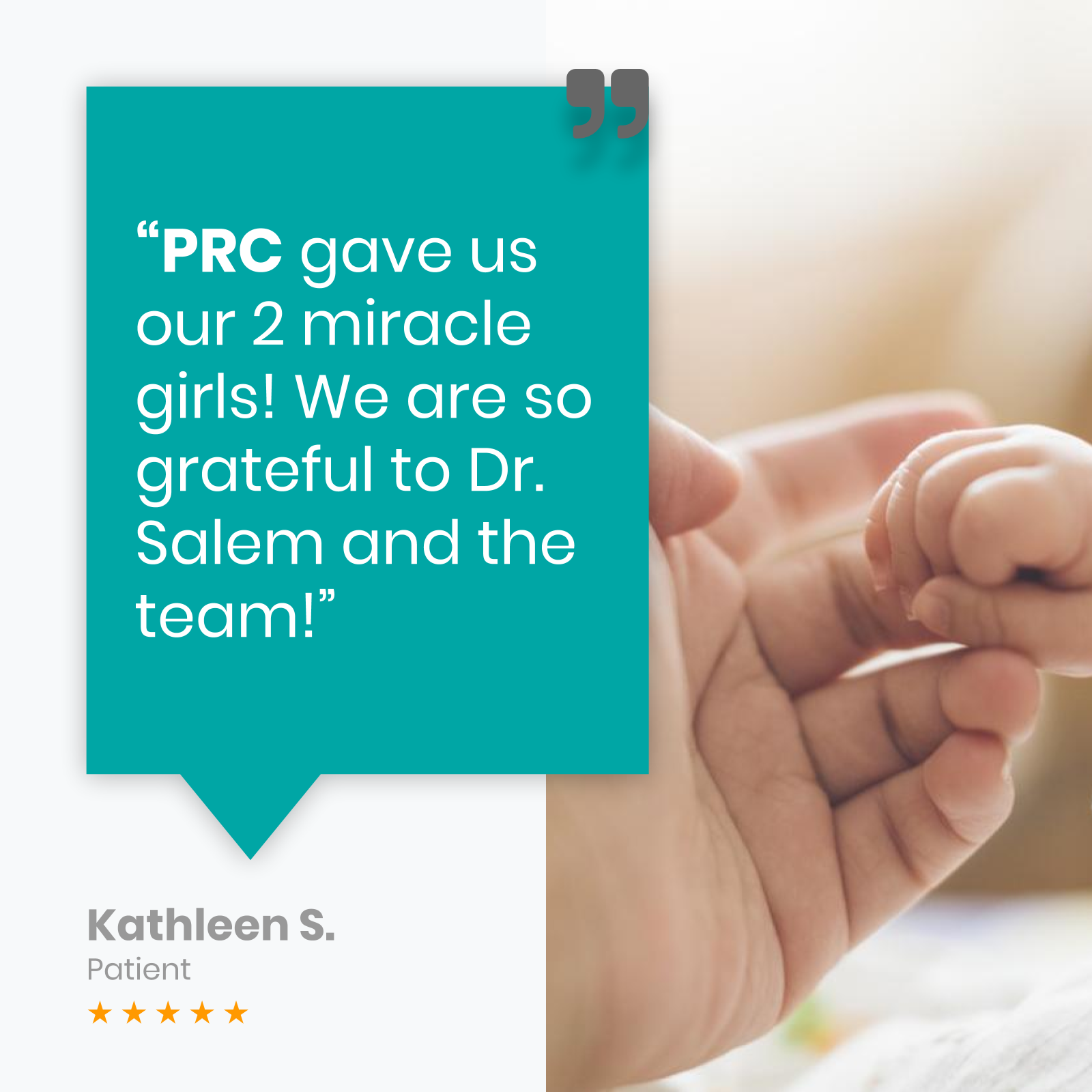Intracytoplasmic Sperm Injection (ICSI) is a groundbreaking technique offered at Pacific Reproductive Center, providing hope to individuals and couples grappling with male infertility or other reproductive hurdles.
This innovative procedure involves directly injecting a single sperm cell into an egg, significantly increasing the likelihood of successful fertilization and subsequent embryo development.
If you or someone you love is interested in this fertility treatment, schedule a consultation with us today. Continue reading to learn more about ICSI.
What is ICSI?
Intracytoplasmic Sperm Injection (ICSI) is an advanced fertility treatment used to treat male infertility or other fertility challenges.
This method significantly enhances the chances of successful fertilization by bypassing barriers that may hinder natural conception, such as low sperm count, poor sperm motility, or abnormal sperm morphology.
ICSI is typically performed as part of an in vitro fertilization (IVF) cycle, allowing individuals and couples facing infertility to achieve pregnancy and build their families.
Understanding the ICSI Procedure
Here’s a step-by-step overview of the ICSI procedure:
- Oocyte Retrieval: ICSI begins with the retrieval of mature eggs (oocytes) from the female partner through transvaginal ultrasound-guided aspiration. This procedure is typically performed under sedation to ensure comfort.
- Sperm Collection and Preparation: Sperm samples are collected from the male partner through ejaculation or retrieved directly from the testes in cases of severe male infertility. The collected sperm sample undergoes preparation in the laboratory to isolate motile and morphologically normal sperm for injection.
- Microinjection: Using a specialized micromanipulation technique, a single sperm cell is carefully selected and immobilized using a fine glass needle. The selected sperm is then injected directly into the cytoplasm of each mature egg under the guidance of a high-powered microscope. This precise injection ensures sperm delivery directly into the egg, bypassing any potential barriers to fertilization.
- Incubation: Following injection, the fertilized eggs (embryos) are cultured in a controlled laboratory environment known as an incubator. This allows for optimal embryo development and growth conditions over the subsequent days.
- Embryo Transfer: After a few days of development, one or more viable embryos are selected for transfer into the female partner’s uterus. This typically occurs through a minimally invasive procedure guided by ultrasound and aims to achieve successful implantation and pregnancy.
Throughout the entire ICSI procedure, close monitoring by skilled fertility specialists and embryologists ensures the safety and accuracy of each step.
When is ICSI Used?
Certain circumstances might require the intracytoplasmic sperm injection process in conjunction with IVF.
Intracytoplasmic sperm injection is typically used for couples who have attempted conception with no results due to male infertility problems. This can include sperm concentrations of under 15-20 million sperm per mL, less than 35% sperm motility, or sperm with very poor morphology.
ICSI is sometimes used in couples with a low yield of eggs during egg retrieval. In this case, ICSI is used to attempt to obtain a higher percentage of eggs fertilized than with conventional insemination of the eggs by mixing them with sperm.
If your reproductive endocrinologist concludes that fertilization using other methodologies would be insufficient, ICSI IVF might be a viable fertility treatment.
Candidates for ICSI treatment include:
- Males with low sperm count or poor sperm motility (movement)
- Males with abnormally shaped sperm
- Males who have had an unsuccessful vasectomy reversal
- Couples with advanced maternal age
- Women with diminished ovarian reserve
If the male partner’s sperm count is low or has poor sperm motility, the sperm can be accessed through standard ejaculation. However, suppose the sperm count is extremely low or nonexistent due to vasectomy. In that case, the male can opt for sperm retrieval using needle aspiration, which is the most efficient strategy for collecting sufficient sperm for the treatment.
What is ICSI IVF?
ICSI IVF has been shown to deliver successful outcomes for patients whose other fertilization efforts have failed. While male infertility is one of the main reasons ICSI protocols are employed, the procedure could help overcome other fertility conditions.
These include previously unsuccessful IVF treatments and atypical or unexplained infertility issues. Often, couples opt for ICSI as a fail-safe even when other procedures haven’t been attempted.
Success rates for ICSI IVF are generally very high. Pregnancies achieved using this treatment option are roughly equivalent to those using IVF, where male subfertility is not a contributor.
About 70-85% of eggs injected using ICSI become fertilized in most IVF programs. This is known as the fertilization rate, which differs from the pregnancy success rate.
ICSI Success Rates
ICSI has shown high success rates, especially for male factor infertility. However, success may vary based on age, fertility issues, and clinic expertise. We recommend a consultation with our experienced team to determine your potential success rate.
Intracytoplasmic Sperm Injection Risks
ICSI is generally considered safe, but there are some risks to consider, including:
- Genetic abnormalities
- Embryo damage
- Multiple pregnancies
- Ovarian Hyperstimulation Syndrome (OHSS)
- Bleeding or infection
- Emotional impact
How Much Does ICSI Cost?
The cost of ICSI varies by location and clinic.
In the US, it generally ranges from $1,000 to $5,000 per cycle, in addition to IVF costs ($10,000 to $15,000). Insurance coverage and financing options may help manage expenses.
It’s advisable to check with your insurance provider to understand your coverage options. Patients should also inquire about payment plans or financing options available to help manage the financial aspect of ICSI treatment.
Start Your Family Today with PRC: Explore ICSI for Conception in CA
The fertility specialists at our fertility clinic in California have helped hundreds of patients welcome healthy babies after ICSI treatments. We have enjoyed exceptionally high success rates with this procedure largely due to our state-of-the-art on-site laboratory for ICSI in Southern California.
This allows the micromanipulation process to begin immediately to ensure the health and integrity of the embryos are not compromised due to transfer to outside facilities.
Your doctor can help you understand if ICSI is right for you: give us a call today to discuss your fertility options – .
Treatments
Pacific Reproductive Center has been successfully aiding conception for over two decades. We optimize the conditions of fertility treatment to give every potential parent the greatest chance of successful childbirth.
Resources
We ensure that every patient fully understands their medical condition and treatment options available to them. We understand each patient is unique so we help guide you through the best option to support your own fertility journey.
Looking for the Best Fertility Clinic in Southern California?
Pacific Reproductive Center has four convenient locations throughout Southern California, making it easy for patients to receive quality care close to home. Each IVF fertility center has an on-site lab, next-generation services, and state-of-the-art equipment.
Whether in Glendale, Torrance, Irvine, or Corona, our world-class fertility doctors can help you build the family you’ve always wanted.
3720 Lomita Blvd, Suite 200 Torrance, CA 90505
116 E. Broadway, Suite 300 Glendale, CA 91205
10 Post Irvine, CA 92618
381 Corporate Terrace Corona, CA 92879




